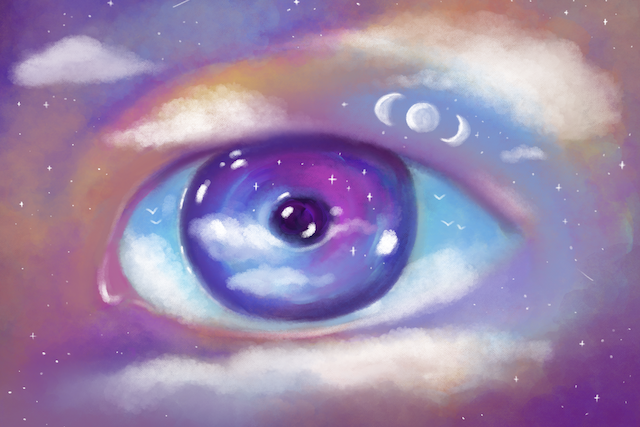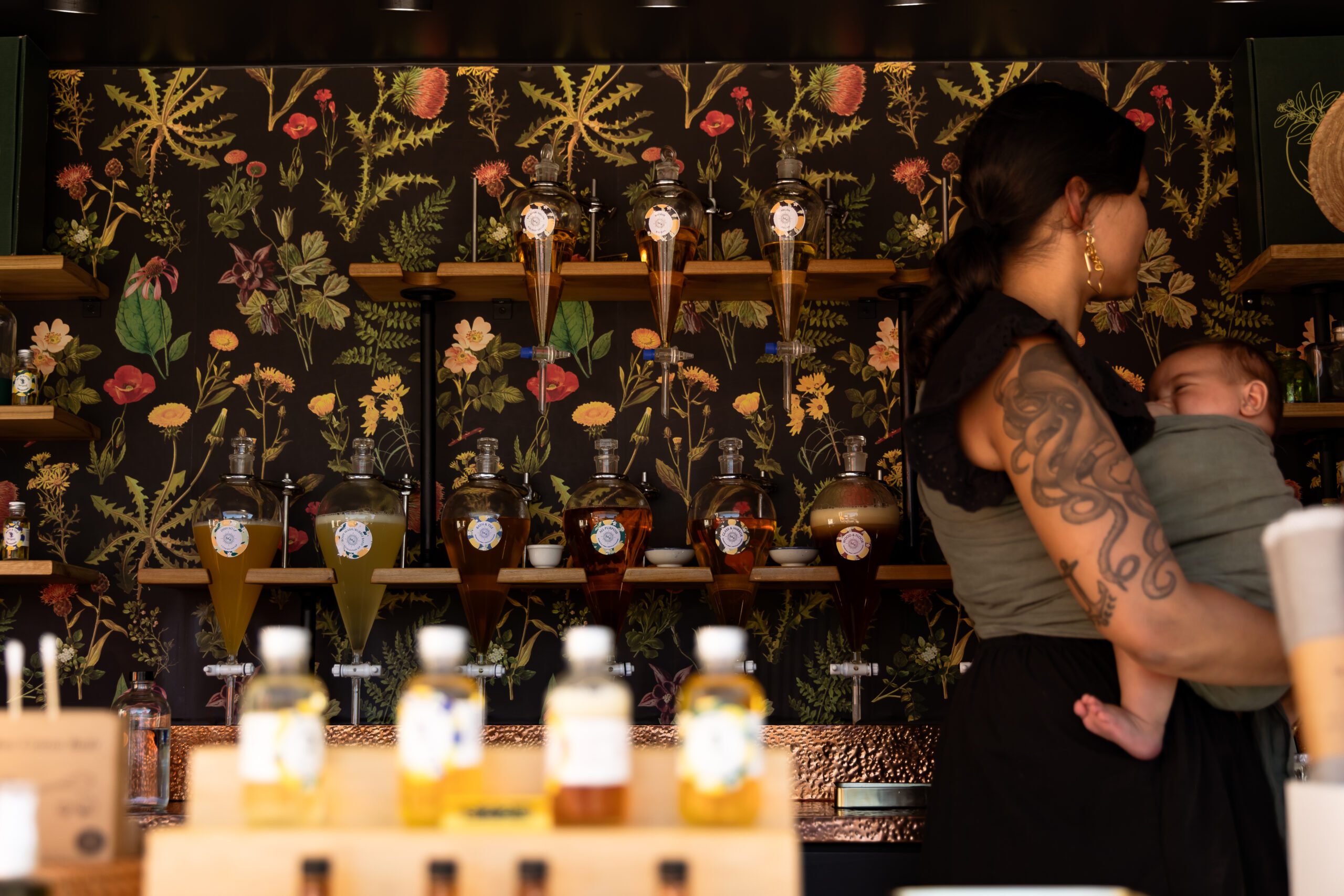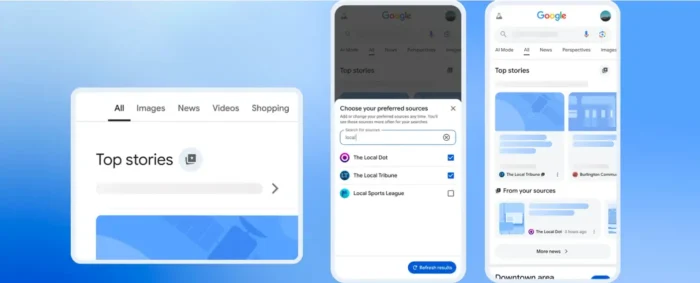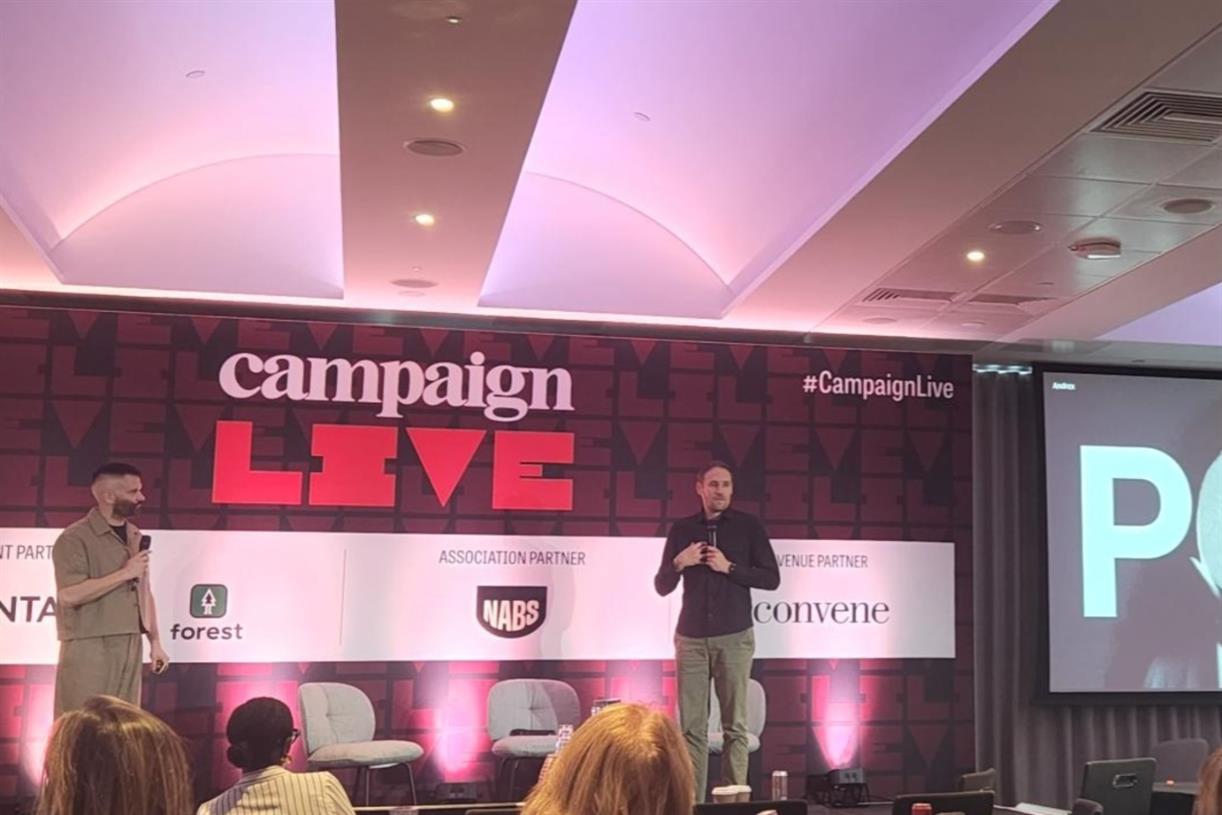I Got A Liquid Microneedling Treatment That Restores Collagen *Without* Needles
My skin is reborn.

Image by Ángela Rober x mbg creative September 29, 2023 We carefully vet all products and services featured on mindbodygreen using our Our selections are never influenced by the commissions earned from our links. Welcome to Know Before You Book, a beauty series where we explore innovative noninvasive beauty treatments on the market today—all of which are safe, effective, and designed to improve the health and longevity of your body. We'll share what to expect, costs, and when possible, firsthand experiences so you can feel confident booking your next treatment. I’m a bit of a wimp when it comes to needles. And by a bit, I mean that I have to avert my eyes and count to ten every time I get blood drawn or else I’ll faint, and I won't say no to a lollipop on my way out for my bravery. Suffice it to say, I’ve never received a vampire facial. But recently, I’ve found myself craving the skin-enhancing benefits that come with some of the more intense beauty treatments. I see the glowing visage of a fellow beauty editor, and I’m almost convinced to just grin and bear it...almost. It must have been kismet that I got the opportunity to try Cellstory, a non-invasive treatment that boasts collagen-restoring benefits with minimal downtime, low effort, and (here's the kicker) absolutely no needles. Ahead, find my honest review and what to expect when booking a treatment. Image by Jamie Schneider / mbg beauty editor / mbg Creative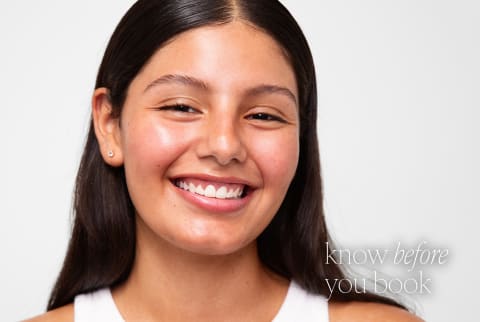
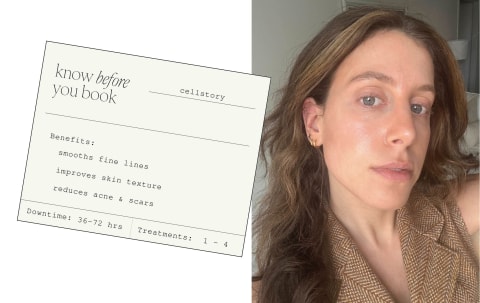
What is Cellstory?
“Cellstory is a liquid microneedling treatment that uses patented microspear technology,” says celebrity esthetician Brittany Blancato. What is a liquid microneedling treatment, you ask?
Well, imagine traditional microneedling, which uses a tiny rolling pin to create micro puncture wounds in the skin, which then kick-starts your skin's natural healing process and an increase in collagen production—this, in turn, can lead to a smooth, plump, rejuvenated complexion.
Standard microneedling requires, you know, needles to prick the skin. The liquid version, however, absorbs into the skin and creates microchannels within the deepest layer of the epidermis (the basal layer), without the use of actual needles.
Cellstory’s patented technology contains 50,000 microscopic liquid microneedles that penetrate into the skin (they also have an at-home version with 10,000 microneedles), coated in calming botanicals to ease irritation. After 72 hours, the skin naturally exfoliates the microneedles as it quickly regenerates new skin cells.
The microneedles come from hydrolyzed sponges found in freshwater; these sponges have tiny spicules with pointed ends that resemble teeny tiny needles, and they’re so small that they can actually penetrate the skin.
“While hydrolyzed sponges have been used in Korean skin care for many years, this specific microspear is unique in that it undergoes a 13-step purification process,” adds Blancato. As those microneedles penetrate the skin, they also deliver skin-plumping actives like growth factors, peptides, and amino acids that further enhance tone and texture.
5 benefits of Cellstory
Sounds neat, no? Here’s what you can expect from a Cellstory treatment:
As I mentioned, microneedling triggers your skin’s wound-healing process. When your skin kicks into this recovery mode, it stimulates the release of natural growth factors that stimulate cell regeneration and collagen production. This, in turn, may result in more supple skin and less fine lines and wrinkles.
“It also improves skin texture and makes skin bouncy and glowing,” says Blancato. With accelerated cell turnover, younger, spry cells replace lingering dead cells, which makes skin appear brighter, smoother, and overall more youthful.
According to Blancato, a Cellstory treatment is great for those with even active acne. (As opposed to traditional microneedling, which you shouldn’t use on inflamed pustules.) Because those microneedles penetrate deep into the skin and eliminate dead skin cells naturally, it won’t open or irritate the pimple. Plus, you don’t have to worry about bacteria transferring onto the needles and spreading across your face.
Microneedling itself can also “help ease the signs of certain skin concerns, such as acne scars," board-certified dermatologist Michelle Henry, M.D., FAAD, once told mbg. Think stubborn hyperpigmentation, picked-at breakouts, and indented scars from cystic acne, which often take months (sometimes years) to completely fade on their own.
The main perk of liquid microneedling? No needles! “It is a great option for people who are looking to experience the benefits of traditional microneedling without the numbing, needles or downtime,” says Blancato. Take it from someone who’s particularly squeamish—I was totally fine, and I would 100% do it again.
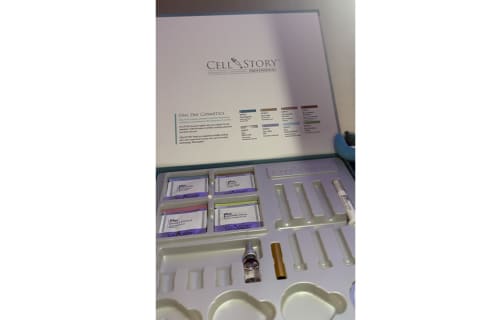
Image by Jamie Schneider / mbg beauty editor
What to expect
I received a treatment from Blancato herself at board-certified dermatologist Yael Halaas, M.D.'s practice in NYC. Allow me to walk you through my entire experience from start to finish.
Before
I’ll be honest: I was very nervous before my appointment with Blancato. Cellstory is a relatively new treatment (only a few years old), so I couldn't find a ton of personal reviews online. The one review I did read mentioned significant pain, redness, and flaking, which only exacerbated my pre-treatment jitters. So I took an ibuprofen beforehand just in case I faced any pain.
Aside from hyping myself up for my appointment, there wasn't much I needed to do to prepare. I refrained from any exfoliation or retinol a week leading up to the treatment, sticking to gentle, nourishing hydrators to build up my skin barrier. Blancato also recommends spacing out any professional skin treatments (lasers, facials, and the like) at least a week from Cellstory.
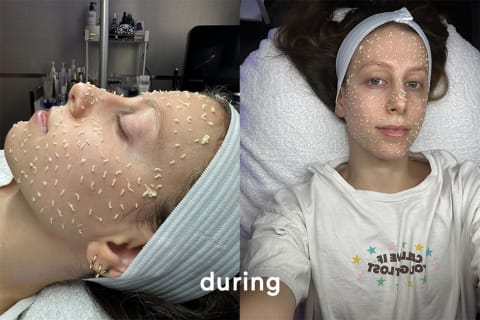
Image by Jamie Schneider / mbg beauty editor
During
The treatment starts out like your typical facial: Blancato washed my face with a gentle cleanser, then applied a hydrating toner and essence, which “warms the skin and prepares the skin for the treatment—that is left on for about five minutes,” she notes. All of these products come included in the professional Cellstory kit (as you can see in my photo above, each client receives a portioned-out kit). Next up was the activator ampoule to help hydrate and prepare the skin for the key microspear step.
Now, for the main event: Blancato used a syringe to dot the product around my face, until she covered the entire surface area. She massaged the cream into my skin with deep pressure—this, friends, is where things turned a little spicy.
I wouldn't call it painful, per se, but it did feel very prickly, almost like she was using a very abrasive face scrub. Immediately after, my face felt hot and tingly, but I was truly expecting way worse. It wasn’t bad at all!
Then she applied a cooling gel to help calm the skin and reduce redness. My skin was certainly craving something cool after the spicy microspear step, and I might have actually sighed in relief. She slathered on a calming mask on top and let it marinate for about 10 minutes to further soothe the skin. Finally, she patted me dry, applied a recovery cream, and topped me off with sunscreen. I was in and out the door within 25 minutes.
After
Blancato mentioned a 36 to 72 hour downtime period, but I veered towards the earlier side of the spectrum. A mere two days after my treatment, I was practically glowing!
But let’s rewind to day-of: The redness dialed down after about an hour, and I thought I was in the clear—until I washed my face that night. Even with featherlight pressure, I could feel those microneedles moving in my skin, sending a sharp prickling sensation with each swipe.
It definitely wasn’t comfortable, but the pain ebbed after a few minutes; I just had to prepare for some spiciness every time I touched my face. To avoid the pain, I decided to opt for ultra-hydrating serums I could pat on instead of richer face creams that required rubbing in. This lasted until the following night, when I suspect my skin cells had fully renewed and the needles had disappeared.
When the prickling sensation stopped, the flaking began. It was super mild—a few dry patches on my cheeks and forehead—and it stopped after another day and a half. I applied (and reapplied, and reapplied) milky serums and moisturizers, and it took incredible willpower to keep myself from peeling off the dry bits of skin. My resolve was worth it, because after another day, I couldn’t believe how soft and supple my skin looked.
It’s like my skin was reborn. My stubborn hyperpigmentation on my chin and forehead had basically disappeared. My skin looked refreshed, smooth, and hydrated. I hate to use the word “poreless” (every living, breathing human has pores, and they are necessary for proper skin function), but that’s the word that kept coming to mind as I assessed my skin texture (or lack thereof) in disbelief. It was so glasslike that I instantly forgot about the minimal downtime I had just endured.
And these results were just from one session! Blancato recommends up to four treatments in one month (with maintenance once a month after that) for maximum benefits, and I’m itching to go again.
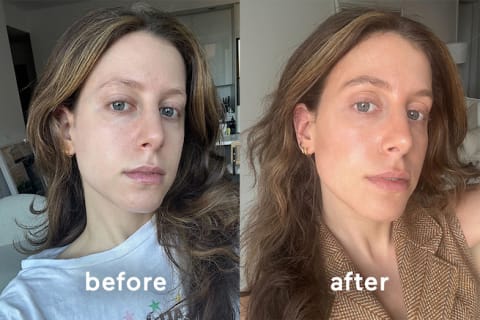
Aftercare tips
I avoided retinoids and exfoliants for a week after my treatment, and I tried not to sweat (no intense workouts or saunas) for a full 72 hours, even though I technically felt fine before that. Of course, I also prioritized sunscreen to protect my fresh, vulnerable skin.
Blancato also recommends steering clear of face oils or heavily oil-based products until your skin fully regenerates. Remember: Oils are occlusive, which means no skin care product (or freshly sloughed skin cells) gets past them.
Stick to milky, water-based confections for a few days if you can. If you’re looking for a 100% approved post-treatment line-up, Beyond Miracles (the company that provides Cellstory) also offers a Mini Set, which includes a gentle cleaner, toner, serum, and cream, all featuring healthy peptides to aid skin regeneration.
From there, general skin maintenance is paramount for long-lasting results. “I suggest drinking lots of water, a [balanced] diet, practicing a consistent skin care routine at home, and wearing SPF religiously,” she notes. After all, “80% or your skin’s condition is from how you take care of it at home, and 20% is what I or your provider do in the treatment room!” she adds.
Shop my aftercare routine
Who it's best for & who shouldn't get it
If you’re a fan of microneedling, chances are you’ll love Cellstory. “The treatment works well for many different skin types and skin concerns, including active acne, which can be hard to treat,” says Blancato. Those with fine lines, dark spots, and uneven texture may also find it helpful, thanks to the uptick in collagen production. And for those curious about microneedling but just can’t overcome a fear of needles, Cellstory is the perfect treatment to try.
As for who should steer clear, “If you're currently pregnant or breastfeeding, I recommend consulting with a doctor before getting the treatment,” says Blancato. “You should also use precaution if you have a strong nut allergy, as there is a small amount of macadamia oil in the Cellstory Plus Recovery Cream.”
I will also point out that I had a relatively mild reaction to the treatment. If you have super sensitive skin, you might experience a lot more redness and flaking than I did during the downtime. Everyone’s skin is different!
FAQ
What is liquid microneedling?
Liquid microneedling is a treatment that creates microchannels in the skin within the deepest layer of the epidermis. The technology comes from hydrolyzed sponges with tiny spicules that penetrate the skin.
How painful is microneedling?
On a scale from one to 10, I’d say it falls around five or six. It’s more uncomfortable than painful, with a sharp prickling sensation upon application and for a couple days after the treatment. Many say microneedling is less painful than laser procedures, so if you can handle that, you’ll be OK—and you’ll certainly tolerate the liquid version.
What is a substitute for microneedling?
You can use an at-home dermaroller, but you should take extreme caution. (We suggest following our full guide.) If you’re looking for a boost in collagen, you can also use topical regenerative skin care (think peptides and growth factors), or collagen supplements to support your internal bank.
The takeaway
I would 100% book a Cellstory treatment again. It does come with some discomfort and downtime, but I’d say the glowing results are totally worth it. It provides similar benefits to a standard microneedling treatment—a tighter and brighter complexion, less dark spots, reduced acne—without using actual needles to prick the skin. Perfect for those who feel woozy at the sight of a syringe (self very much included).

 Tfoso
Tfoso 








